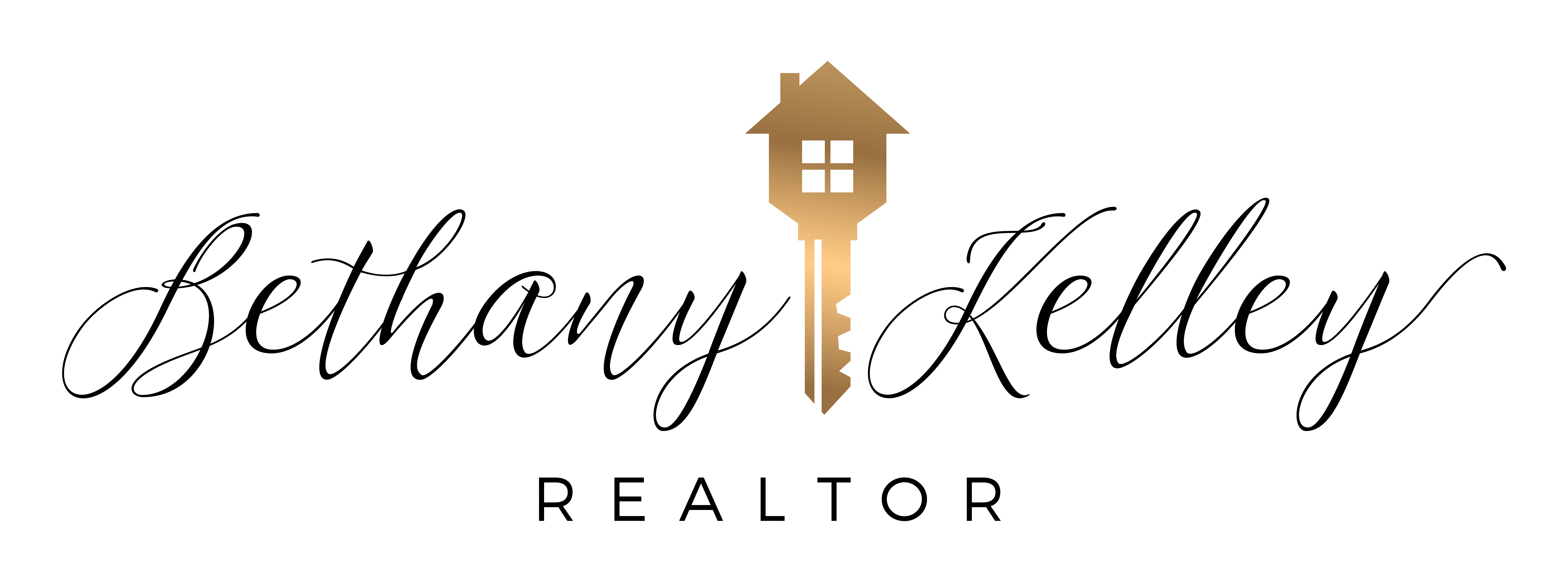Hello (hopefully again), and thank you for joining me in the third installment of my real estate guide series, “Mistakes in Real Estate – Top 12 Buyers Mistakes”. I hope that you find this guide informative. Please reach out if you have any questions, success stories from using the guide, or would like to schedule a conversation about how I can help you with your real estate needs.
Table of Contents
Overspending – Becoming House Poor – Failing to Budget for Upkeep
When you are in the process of purchasing a new home, you really need to budget carefully to be sure that you will be able to live and keep that home up comfortably within your budget. Stretching to the top of your budget is not necessarily the best idea when purchasing a home. There are regular expenses (often monthly), long term expenses, and unexpected expenses that come with home ownership and you want to be prepared for all of them.
Regular monthly expenses for home ownership include your mortgage payment that covers your loan payment, property taxes, and homeowner’s insurance. You may also have Homeowner’s Association or Condo Association dues to pay monthly. You also will need to budget for your monthly bills such as electric, gas, water, sewage, and trash. Remember that all of these monthly expenses can change . Even your monthly mortgage payment can change if your taxes or homeowner’s insurance goes up.

Long term expenses are for things like a new roof, new HVAC, appliances, kitchen or bath remodel, etc. These are things that you will need to plan ahead for and even start saving up for once you purchase your home. NACHI is a great resource for finding a home inspector and learning about the average life expectancy for just about everything related to a home. It’s always wise to plan ahead when you have a big home project coming up.
Unexpected expenses are usually things that pop up without warning, like when your water heater goes out or your oven quits working or your roof develops a leak. Some homeowners prefer to have a Home Warranty to cover these types of things. If you do go with a home warranty, please do your research to be sure what exactly the warranty will cover and look for reviews from other consumers as to the warranty company’s reliability. Other homeowners just decide to set aside some money each month or year to cover these unexpected pop up expenses. No matter what way you choose to pay for these unexpected expenses, just be sure that you have a plan and are ready when they arise.
In addition to these three types of expenses, you should be budgeting for monthly or yearly maintenance expenses. As a rule of thumb, these maintenance expenses usually cost 1% – 2% of the value of your home each year. If you have a newer home, maintenance expenses may cost less and if you have a much older or not well-maintained home, you can expect these to cost more. Maintenance expenses can cover everything from servicing your AC unit, to cleaning your dryer vent, to caulking your bathrooms, to mulching your yard. These will vary from house to house, but no matter what they are you want to have budgeted and be prepared for them.
So if you are looking at a home that is going to stretch you to the maximum amount that you are able to spend, please step back and take all of these things into consideration before making that move. The last thing that you want to do is overspend and become “house poor”. Putting some time and thought into a solid budget and preparing for even the unexpected expenses will put you in a good financial position when you purchase your home.
It’s always a good idea to work with an expert in their field. I am a real estate expert! Click below to get answers to all of your real estate questions today.
Not Doing Your Own Research about the area, schools, crime, plans for surrounding areas, etc.
If you try to ask your realtor questions about an area where you are considering purchasing a home, one of the first things that they will tell you is that they are not allowed to comment on many of these things. Realtors are not permitted to talk about demographics, schools, crime or really anything that would possibly create a Fair Housing issue. So your realtor is not trying to be difficult or not helpful, but his or her hands really are tied in this situation. What a realtor can do is provide you with good resources to educate yourself on the area so that you can make a wise decision.
I often have clients ask me what I think about certain schools. While I quickly let them know that schools are not something that I can give an opinion on because the Realtor Code of Ethics prohibits that, I also remind them that what I consider important in a school is not necessarily what they would consider important. Everyone has different things that are looking for in a good school so it’s important for you to do your own research and find a school that is a good fit for you and your family. I have found that School Digger is a good place to start when researching schools. Even if you don’t have children in school, you should do some research about the schools that a home is zoned for because when you go to sell this may be an important factor for the next buyer.
Just like realtors cannot give opinions on schools, the same holds true for crime or safety. You will definitely want to look into what the crime and safety statistics are for any areas that you are considering. As mentioned in a previous section of this series, visiting a home and neighborhood at different times of the day and different days of the week won’t necessarily let you know about the crime and safety stats in a neighborhood, but it can help you see if a neighborhood is a good fit for you. Researching areas online, reaching out to local police departments, checking for registered sex offenders (see Megan’s Law), and even talking to neighbors will all help you get a feel for the area.

It’s also important to research any town or county plans for the area surrounding a home that you are interested in. If there is an empty lot nearby, you should definitely check the town/county records to see what the plans for that lot may be. Don’t rely on anything that a neighbor or even a realtor may tell you because they may not know the whole story. Also look at the bigger picture in a community so that you will know of any plans for future development or plans for any businesses coming in or out of the community which may affect the livability and future property value of a home that you are considering.
Another thing to spend some time researching before purchasing a home is what your commute will be like. While this may not be a big deal in some areas, it is always wise to look into how long it will take you to get to and from work as well as what the options are for public transportation. One good way to research this is to try driving the route you would take to and from work a few times at the actual time you go to and return from work. If you are not able to do this, Google Maps has a good feature that allows you to see what traffic and drive times are like at certain times of the day based on “typical traffic”.
If a home is located in an HOA or Condo association, you will want to research those associations. You want to be sure that the association is financially solvent and there are no pending lawsuits against the association. You should also look into the Codes, Covenants, and Restrictions to make sure that there is nothing in these that you cannot live with. You also want to make sure that if you are planning to make changes to your home or property there is nothing in the CCR’s or Architectural Guidelines that will prevent you from making the changes that you desire.
You should also research the taxes and cost of homeowner’s insurance for a property. These will be a part of your expenses as long as you own the house so you want to make sure that these are affordable and make sure that there are no plans for a drastic tax increase or any reason that homeowner’s insurance will be very expensive for a home (for example if flood insurance is required or multiple claims have been filed by previous homeowners).
These are just a few important things that you want to look into before purchasing a home. Luckily, there are many great resources on the internet to do this type or research. Internet research along with exploring the area in person is a great way to feel comfortable about a home that you are considering buying. While your realtor cannot give you opinions of these types of things, they can often point out some great websites or local resources where you can do your own research so be sure to ask for recommendations, not just opinions!
Buying or selling a home is a huge decision. You need the guidance of a real estate expert to help you navigate this process. Click here to find help with making good real estate decisions.
Not Shopping for a Good Local Lender
When someone decides they are ready to purchase a house, one of the first things that they need to do is get pre-qualified or even better pre-approved with a lender. Many buyers will just reach out to their current bank/credit union or to an online lender that they have seen advertised. Like so many other aspects of purchasing a home, this is something that you should put a good amount of thought and research into.
It’s always worth talking with your current bank or credit union to see what type of loans that they offer (Conventional, VA, FHA, USDA, etc.) as well as what type of fees they charge and what rates they are offering. It’s also a good idea to ask any friends or family members who have recently purchased a home, if they worked with a good lender that they would recommend. The best source for lender recommendations though may be your realtor.
Realtors are used to working with many different lenders either when their buyers are using them or when a buyer has used them on a listing that the agent has sold. Over the years, realtors have learned not only which companies are good to work with and take great care of their buyers, but even which loan officers. You may choose a great company to work with, but end up with a not so great loan officer. Having a recommendation for a specific loan officer at a company is a great thing.

While some big companies and online lenders may do a good job, normally a really good local lender will almost always do the best job for a buyer. One of the things that local lenders tend to do better than other types of lenders is communicate. It’s important to be able to reach your lender not just during normal business hours, but often in the evening or on weekends when you may be looking at homes with your realtor and getting ready to write an offer.
Another important thing to consider is the rates and fees charged by a lender. Local lenders often have more competitive rates and lower fees than big lenders, but it’s always smart to shop around. You will want to make sure that you are comparing apples to apples when you research lenders and loan options. Make sure that you are comparing the same type of loan (Conventional, VA, FHA, etc) and make sure that the interest rates that you are looking at are the rate with no points paid to lower it. Some lenders will advertise a “teaser” rate which actually requires you to pay points to get that lower rate. Also, make sure that a lender has given you all of the fees that will be charged by them for your loan. Only when you have all of this information, can you compare what different lenders are offering you.
Once you’ve researched all of this information, make sure that you are comfortable working with the particular lender and loan officer that you have chosen. Make sure that you know exactly who you are going to be working with throughout this process. It’s not uncommon to work with an assistant as well as an underwriter in addition to your loan officer during this process, but your loan officer should still remain a good point of contact for you. Be aware that some large companies do not actually assign you a loan officer and any time you reach out, you just get whoever answers the phone. This is not necessarily the best way to get through the lending process. You will be working very closely with your lender for the next month or so and sharing a lot of personal financial information during this process so you will need to work with someone that you trust and are comfortable with. As with all other aspects of the home buying process, be sure to do your research about lenders and choose one that’s the best fit for you.
My mission is to guide buyers, from being potentially frustrated and confused, to confident and educated. Schedule a conversation with me today!
Make sure you join me next week for Part 4 of series 1, Mistakes in Real Estate, Top 12 Buyer Mistakes! Also, if you found this content helpful, I’d love it if you could help me get the word our by sharing with your family and friends on your favorite social network(s.)





[…] sure you join me next week for Part 3 of series 1, Mistakes in Real Estate, Top 12 Buyer Mistakes! Also, if you found this content helpful, I’d love it if you could help me get the word our […]